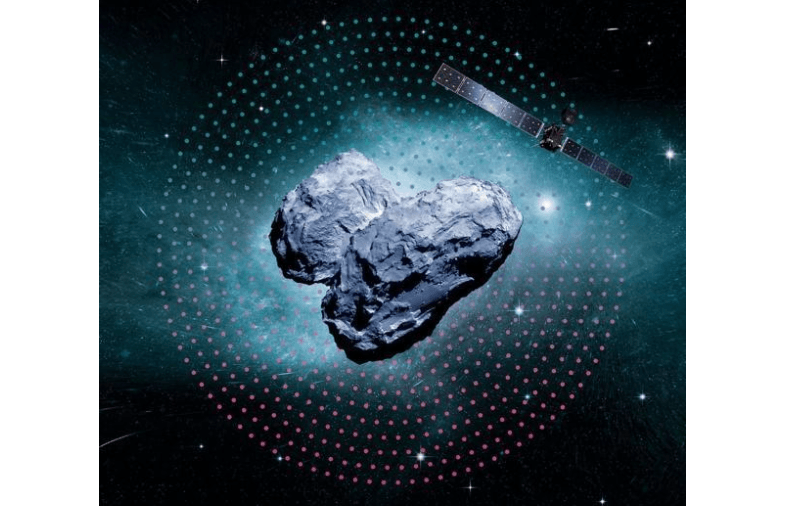Vangelis is something of an illustrious name in the modern annals of electronic composition. Many will recall his now iconic soundtrack to the 1980s classic sci-fi noir film Bladerunner, featuring Harrison Ford moodily tracking down and terminating rogue androids in a dystopian futuristic Los Angeles.
This latest outing by the Greek composer is inspired by the European space agency’s recent Rosetta mission to orbit and land on comet67P/Churyumov-Gerasimenko with the Philae lander. It’s actually in the news as I’m writing this. As such the music is best described as space ambient, maintaining what Bladerunner fans remember and love about his style of sound and composition. This means there is a heavy emphasis on keys-based instrumentation, which differs from other space ambient records, by the likes of Benn Jordan or Chronos, which are often more diffuse and generalised.
Putting that much focus into a work like this could do something to disturb the tranquil astral ambience, or make it lack subtlety. In fact for well over 90% of the time the music moves seamlessly from tranquil to grandiose with a grace that easily bridges this divide. There are times where I felt this was going to tip over into the pomposity that previous Vangelis work has been marked by, some of which is just too silly. Thankfully though these possible moments are few and far between, and once you get into the theme and roll of the record it is easily forgotten and worked into the general listening experience as part of the noble endeavour of exploring the cosmos.
Rosetta is thoroughly enjoyable, and is an excellent recommendation of choice for a ‘study’ record, or the type of album to accompany you if you’re intending to go out star-gazing any time soon. Live long and prosper, Greek star man.
Leo Kindred

